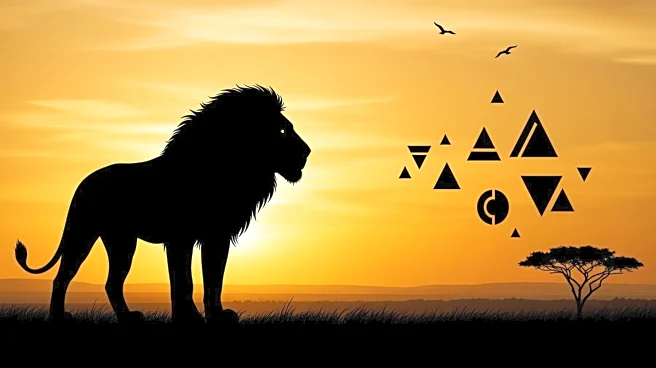What's Happening?
Jacob, an 11-year-old lion in Uganda's Queen Elizabeth National Park, has defied expectations by surviving after losing a leg to a poacher's snare. Researchers were initially convinced he would starve,
but Jacob has adopted a new hunting strategy, acting more like a leopard. He sets close-range ambushes in dense thickets and scrub forests, targeting prey lions typically do not hunt, such as 200-kg forest hogs. This inventive approach has allowed him to make kills both alone and alongside his brother, Tibu. Jacob's survival is a testament to his adaptability and resilience.
Why It's Important?
Jacob's innovative hunting strategy highlights the adaptability of lions in the face of adversity. His ability to survive despite significant physical challenges offers insights into the resilience of wildlife and the potential for behavioral adaptation. This case underscores the importance of conservation efforts and the need to protect wildlife from threats such as poaching. Jacob's story is symbolic of the broader challenges faced by lions in regions experiencing habitat loss, climate change, and human encroachment. His survival may inspire new conservation strategies to support declining lion populations.
Beyond the Headlines
Jacob's novel hunting strategy may represent teachable behavior that could help reverse declining lion numbers in regions facing environmental challenges. His ability to adapt and survive despite losing a limb is a powerful symbol of resilience and survival. This case highlights the potential for behavioral adaptation in wildlife, offering hope for conservation efforts aimed at preserving endangered species. Jacob's story is a reminder of the importance of protecting natural habitats and supporting wildlife conservation initiatives.










